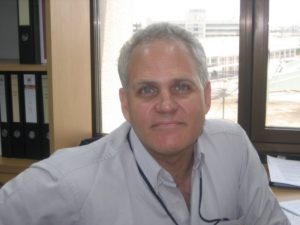“Trafficking? Here? In the United States?” I fear this would summarize the majority’s response. While human trafficking is well-known around the world, the United States is falling behind in awareness and lacks a unified approach towards its prevention. Strong commitments do exist at the community level, but these tend to function independently or have little financial support –a reflection of missing systematic plans to stop human trafficking within US borders altogether.
According to a 2012 ILO report, an estimated 20.9 million people globally are victims of forced labor. Of these, 55% are female and 45% male. This 10% difference is attributed to women and girls’ involvement in sex trafficking, as men and boys are predominantly involved in other types of forced labor. Data is limited for reasons described below, but in 2016 more than 4,000 cases of sex trafficking have been reported in the US according to the National Human Trafficking Hotline. In Atlanta, Georgia alone, an estimated 300,000USD in annual profits are generated from this practice, as stated in a memorandum written by Dr. Robert Christensen to local legislature. Yet, still, the issue is largely dismissed as a foreign one and the victims remain silent.
Sex trafficking victims in many cases don’t realize they’ve been trafficked. Many are young and succumb to false promises. Others, ironically, keep silence for fear of law enforcement. Just as laws treat minors as criminals if caught drinking before the legal age, for example, human trafficking victims under 18 are treated as criminals if they’re caught prostituting. This means victims are not accessing services they need for recovery, such as being admitted in to a counseling facility or given temporary shelter. These girls, often from middle-income families, are instead sent to juvenile prison or bailed out by their pimps, taking home a criminal record as well.
This silence certainly has made data gathering and analysis challenging. Matt Friedman of the Mekong Club, an organization devoted to end modern-day slavery, recently toured the United States to encourage people to get involved. The data he observed was available shed light on the following challenges: 1) Raw data appeared to have been collected in different formats 2) There is no central repository for analysis or dissemination 3) Some organizations were resistant to share their data fearing it would give others a funding advantage 4) Many groups didn’t know the value of applying good data to their work. Friedman explains these challenges were missed opportunities as they would only improve awareness efforts. Similarly, it is difficult to show trends or monitor change when information hasn’t been previously available or measured.
Another reason sex trafficking awareness is low is simple: denial. “This only happens abroad!” “Our children are protected here!” For many Americans, the idea this could happen to a friend or a neighbor has not been accepted. This mentality needs to change.

Matt Friedman
This is why people like Matt Friedman, an activist for more than 25 years, and trusted organizations like The Mekong Club are important. Friedman, alongside his wife Sylvia Yu, Hong Kong-based journalist and winner of the 2013 International Human Rights Press Award, talked about forced labor at 112 presentations across 17 states to corporations, government offices, schools, NGOs, faith-based groups, Rotarian Clubs and general audiences. Some of the solutions they propose to drive awareness and preventative efforts include an inventory and revision of all US anti-human trafficking laws, updated training to law enforcement and civil service officials, a commitment by existing local institutions to work together, and a call for the government to come up with a master plan, much like those created to eliminate poverty or HIV/AIDS.
The State of Georgia could be an example of a way forward. “Georgia represented an exception,” Friedman states, “the counter-trafficking response there was coordinated from the State level down to the community level with many systems and procedures in place.” In the December 2015 memorandum to Georgia legislature, the following solutions were proposed to fight sex trafficking: 1) create stricter laws and punishments 2) decriminalize prostitution and 3) legalize prostitution. Each solution has important arguments worth understanding.
The argument for stricter laws recalls other nations’ efforts. Sweden in 1998, for example, became the first country to criminalize anyone that purchased a sex service. This allegedly cut street prostitution in half, as L. J. Lederer states in 2010. Other European countries followed but with unclear results, and South Korea in 2004 took a more comprehensive approach. This country’s laws prohibit all forms of prostitution and provides victim with assistance.
The decriminalization of sex-trafficking would involve removing, or reducing, all criminal penalties, but keeping prostitution subject to certain laws. It could even mean keeping laws in their current state, but not enforcing them, as R. Weitzer states in 2012. New Zealand is claimed to follow this approach as do a few US states that are forming laws focusing more on identifying victims rather than arresting prostitutes, as R. Beitsch describes in 2015.
Legalization may not be as effective as envisioned. This is more common internationally but also practiced in one US state –in the rural counties of Nevada (but not in major cities like Reno and Las Vegas). Legalization would involve government regulation, such as the registration of women in sex venues, locations of brothels, health monitoring and taxation, as R. G. Raymond describes in 2013. While some claim legalization has kept rural brothels in Nevada free of human trafficking, Raymond argues this hasn’t been the case for the Netherlands. Despite prostitution considered a legal profession there, “forced prostitution, abuse by pimps and the presence of organized crime remain problematic.”
Friedman also pointed to the pros and cons of legalization. “In Amsterdam you have about as much trafficking now as prior to legalization. It’s not about whether a woman chooses to get into this and is regulated, but more that they are forced and tricked into it because money can be made by these people.”
On Election Day November 8th, 2016 with over three million votes, Georgia passed the Safe Harbor Amendment 2 Child Sex Trafficking Fund, which will cover the costs for child victims’ recovery services, such as safe housing, trauma counseling and medical treatment. This State-managed fund is made possible through fines given to sex-trafficking criminals and new fees imposed on the adult entertainment industry, especially establishments offering alcohol and nudity.
Amendments like this one bring hope, but the fact that such a pervasive problem goes almost unnoticed by a country is frightening. “While it was never our intention to carry out an analysis of the state of the human trafficking response in the USA, within the first 20 days it became clear that there were many observations and lessons worth documenting,” writes Friedman in his trip report, available here. When I interviewed him for this article, it was also not my intention to carry this message forward, but it’s the only one if we’re to drive awareness and action in the US. We can begin today, right now, by educating each other, uniting and lending our voices, and deciding to take this issue seriously.
Politheor’s Special Report : The Gender Agenda
—
Author’s note: This article focuses on the female gender because it honors an international call to end violence against women, and because women are the majority involved and have historically been more disadvantaged than men (pay, education, opportunities). This article does not pretend, however, to disregard that men are victims too. Men and boys are forced into labor also and should be included in all abolition movements and conversations. A special thank you is extended to Matt Friedman and The Mekong Club for their time, expertise and inspiration.
1 comment













1 Comment
womenlikeusfoundation
08/09/2017, 12:47 pmI believe one-day human trafficking will be a thing of the past, but the government needs to do more. Laws need to be put in place to prevent such things from happening.
REPLY